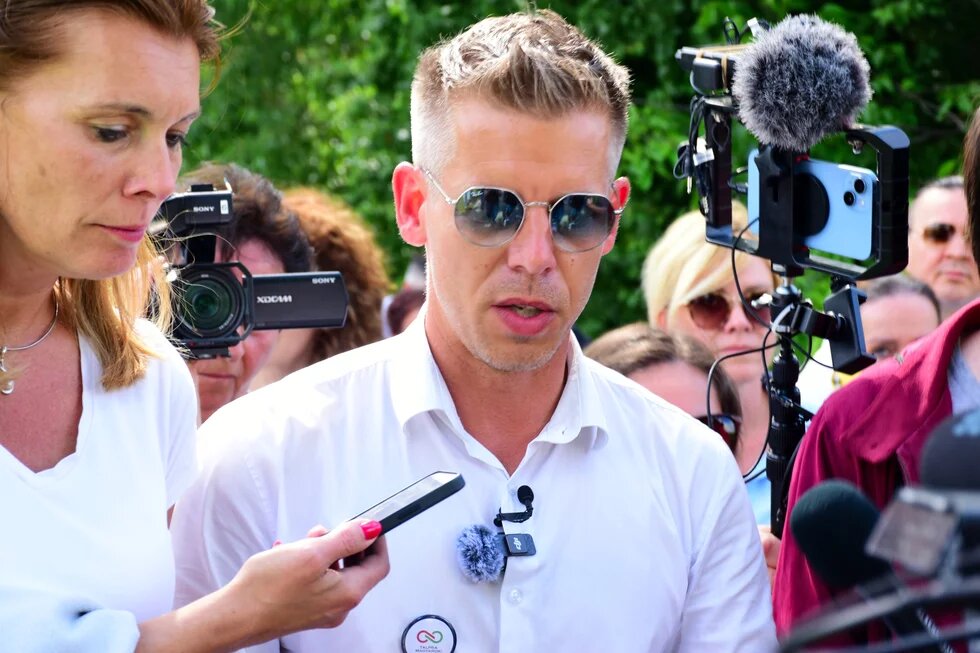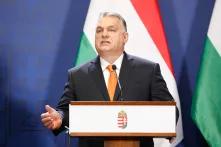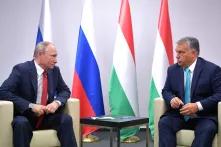The Hungarian political scene has never been more turbulent in the past 14 years. Since the start of the clemency scandal in early February, Fidesz has been unable to control the political narrative for months, despite its dominant position in power. The campaign leading up to the local and the European Parliament (EP) elections has been dominated by a new challenger, Péter Magyar, and his Respect and Freedom Party (Tisza) so far, although in recent weeks Fidesz has found its footing again. At the same time, Fidesz is seeking accession to the European Conservatives and Reformist (ECR) group in the EP, which is wreaking havoc within the member parties of that group. The question of the party’s future political family at the EP is still unsettled.

Unforeseen and unpredictable political shifts have started to unfold in Hungary
The unquestioned position of Fidesz in power has been dented by the economic downturn of the past year and a half and by recent scandals. Hungary has grappled with a recession and high inflation, plunging a rising number of people into hardship. The clemency scandal has aggravated the situation, as it undermined a fundamental element of the regime’s identity: The protection of children. After it was revealed that the accomplice of a pedophile had been granted clemency, President Katalin Novak resigned and Judit Varga, the potential leader of Fidesz’s European Parliament ticket and a former Justice Minister, stepped back from politics. As the scandal seemed to calm down, a new challenger entered the political arena. The ex-husband of Judit Varga and a former government insider, Péter Magyar, stepped into the limelight and accused one of the key figures of the regime, Antal Rogán, the Minister for the Cabinet Office of the Prime Minister, of grave abuse of power. His image as a regime insider accelerated an unprecedented growth in Péter Magyar’s public recognition and popularity. He has channeled the dissatisfaction of voters with the established opposition parties and launched a new movement and then a party (Tisza), to run in these elections. Tisza seeks membership of the EPP if elected.
Although Fidesz has been waging a massive smear campaign against Magyar for months, the ruling party has been reactive to events, unable to regain control of the political narrative and to shape the agenda with its anti-Brussels campaign. This is changing, however, with Fidesz starting to take back control. The ruling party claims that the EU threatens Hungary’s sovereignty, pushing the narrative that “leftist pro-war politicians” such as Ursula Von Der Leyen and Emmanuel Macron are risking the outbreak of World War Three by providing weapons and funds to Ukraine, while “conservative” and “pro-sovereignty forces” want to end the war and advocate for a ceasefire and peace talks. Fidesz frames the EP elections as pro-sovereignty forces fighting against the globalist elite, claiming pro-sovereignty forces should occupy Brussels to return the West to normalcy.
Magyar’s meteoric rise has not just derailed the campaign of Fidesz, but also those of the fragmented established opposition parties. Magyar speaks of an “Orbán-Gyurcsány government” to frame the opposition and the ruling party as one and the same, thus rejecting the entire established political elite. He stresses that PM Viktor Orbán is the same as former PM Ferenc Gyurcsány. He aims to create a centrist political force to shatter the status quo. So far, Tisza has mainly attracted opposition and undecided voters but is seeking to appeal to Fidesz supporters by using Fidesz-like rhetoric and symbolism. He also aims to overcome the urban-rural divide by organizing protests in the capital and in the countryside. As a result, according to polls, Tisza is the runner-up party behind Fidesz.
The established opposition parties are therefore fighting for relevance in the face of an existential threat. Before Tisza emerged, the Democratic Coalition (DK, EP group: Progressive Alliance of Socialists and Democrats [S&D]) was set to become the relative winner of the EP election, thus becoming the largest opposition party. The party entered a joint three-party list with the Hungarian Socialist Party (MSZP, S&D) and Budapest mayor Gergely Karácsony's party, Dialogue (“Párbeszéd”, European political party: European Green Party [EGT]) in order to unite committed left-wing voters. MEP Klára Dobrev, the leading candidate of the joint list, campaigns with anti-Orbán rhetoric while calling for a snap general election if Fidesz's support drastically falls in the EP elections. The liberal Momentum (EP group: Renew) is fielding a separate EP list spearheaded by party leader MEP Anna Donáth. The party seeks to attract voters with its achievements in the current EP term, such as getting direct EU funding for Hungarian civil society and municipalities. The formerly radical right-wing and now mainstream Jobbik party, will likely lose its only seat in the EP.
Two parties aspire to gain their first seats in the EP: The extreme far-right Our Homeland (Mi Hazánk) and the anti-establishment and extra-parliamentary Hungarian Two-Tailed Dog Party (MKKP). Mi Hazánk's EP list is led by the party leader and MP László Toroczkai, who campaigns against European integration in order to protect Hungary from the "anti-national ideological interest network of Brussels". The party seeks membership of the Identity and Democracy group if elected. MKKP's leading candidate, Marietta Le, focuses on anti-corruption and citizen participation in EU politics. If elected, the party seeks to join the Green/EFA group.
Ultimately, the political turmoil makes it difficult to predict the outcome of the EP elections. Although Fidesz’s popularity has declined since June 2022, especially since the clemency scandal, the party remains the strongest in the country. Thus, the most likely outcome is that Fidesz will obtain most of Hungary’s 21 seats and the opposition will remain fragmented. A relatively large Fidesz victory could solidify its position as the hegemon in the domestic arena, cooling down the upheaval among the opposition voters. On the other hand, if Fidesz loses a handful of their mandates (their party alliance gained 13 in 2019) it could lead to a revival and reshaping of the opposition.
We have seen this movie before – a declining but ultimately triumphant Fidesz (e.g. in 2018 and 2022), so even if the political climate seems unfavorable for the ruling party no, it still has no challenger when it comes to election day mobilization. All in all, the unexpectedly turbulent political developments should be neither underestimated nor overestimated.
Fidesz's future political family in the European Parliament is still unclear
Since Fidesz was forced to leave the EPP in 2021, the party has been searching for a political family in the EP. At first, Fidesz attempted to create a large far-right coalition with parties spread between the European Conservatives and Reformists (ECR) and the Identity and Democracy (ID) group. Despite the efforts of the Hungarian ruling party to bridge the gaps and smooth over the points of friction between these two groups in terms of their interests, the Russian invasion of Ukraine destroyed the possibility for their cooperation. Due to the strong prejudice and cordon sanitaire against the ID faction, the more favorable option for Fidesz is to join the ECR. Orbán publicly announced Fidesz's desire to join the group in February 2024. If the ECR accepts Fidesz, the party could become the third-largest delegation in the group after the Brothers of Italy (FdI) and Law and Justice (PiS) in Poland, and the group could become the third-largest political family in the EP. However, Fidesz will need the backing of a two-thirds majority of the 30 member-council of its member parties. Some ECR parties, such as the Sweden Democrats, the Finns Party, the Latvian National Alliance, the Czech Civic Democratic Party, and the Slovak Solidarity and Freedom have expressed concerns about Fidesz joining the group and their opposition to its membership due to its vocal pro-Russia and anti-Ukrainian stances. Consequently, the ECR and FdI leader, Giorgia Meloni, as well as PiS, will need to reconcile their internal opposition to Fidesz membership while requiring concessions from Fidesz. Ultimately, an ECR membership could moderate Fidesz's current pro-Kremlin and anti-Ukrainian narrative to conform to the group's stance.
If the ECR rejects Fidesz, it could pivot towards the ID group, which would welcome the party with open arms. However, the ID group will likely go through a transformative re-organization since the French far-right National Rally (RN) announced they would no longer sit there in the next term together with the Alternative for Germany (AfD) after the remarks of Maximilian Krah, that party’s lead candidate for the EP elections, about Nazi SS soldiers. The group ultimately expelled the AfD. Only the leaders of the Austrian and the Estonian far-right parties joined the AfD to keep the party as part of the ID group. The potential restructuring of the ID group could open the door for Fidesz; they previously refrained from joining the group, as openly cooperating with the AfD would jeopardize the remnant of goodwill they enjoy rom the Christian Democratic Union of Germany. Marine Le Pen, leader of the RN, invited Italian Prime Minister Giorgia Meloni, the leader of Fdl, to partner and form a new right-wing group.
Fidesz could improve the country's reputation in Europe during Hungary's EU Council presidency. While appearing to be an honest broker in the Council, the Orbán regime could aim to disseminate its views and promote the narratives of anti-establishment and “pro-sovereignty” forces. In the fall, allies of Fidesz could come out on top in the Austrian general election, the German regional election, and the US presidential election. However, if the current predicament prevails, Hungary will drift towards the EU's periphery without any major strategic allies.


